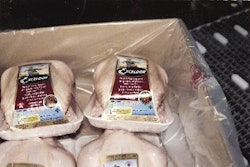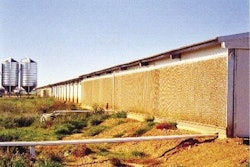European Union (EU) is a mutual assistance society with an unofficial motto of ‘One for all and all for one’, straight out of Alexandre Dumas’ classic novel, The Three Musketeers. It offers clear advantages for member countries when hit by diseases like H5N1 with consequent and inevitable trade bans on live bird and poultry product exports to countries outside the EU.
Following the outbreak of the highly pathogenic strain of the H5N1 avian influenza (AI) virus in turkeys in the eastern English country of Suffolk, the UK faced trade bans in Japan, China, Hong Kong and South Africa among others. However, provided trade is with fellow EU member countries, exports are protected. Any EU ban is restricted to the affected area of the country and unilateral bans by other member countries are not allowed under EU rules.
So how should individual member countries protect their own poultry industries, let alone public health? The UK has been feeling the ‘sharp end’ of the EU ‘sword’.
UK egg producers were almost wiped out in 1988 after the now famous ‘Edwina Currie salmonella scare’. Currently, they produce some of the cleanness eggs in the world and yet consignments with unacceptably high rates of salmonella infection now come from some other EU countries. Although worrying for UK consumers and poultry producers, there is nothing the UK government can do because any restriction would breach EU rules.
Poultrymeat sales slumped in France and Italy following H5N1 outbreaks in commercial poultry and wild birds, respectively, in February 2006. Italian and French poultry depressed prices when ‘dumped’ on the UK market following bans in non-EU countries around the world,
When H5N1 hit Bernard Matthews Company’s turkey farm in eastern England earlier this month, the UK government claimed infection transmission was through trading within the multi-national company. Bernard Matthews owns the infected farm in England and has extensive operations in Hungary where H5N1 appeared in geese some weeks earlier.
Though first denied, a potential transmission link was established between a suspect slaughterhouse in southern Hungary and a Bernard Matthews processing plant in England on the same site as the infected turkey farm. Genetic sequencing revealing H5N1 strains to be identical supported the link.
Three days after the Suffolk outbreak and with a restriction zone in place, EU rules allowed truck-loads of potentially infected fresh poultrymeat from the Hungarian slaughterhouse to the UK factory through the UK’s restriction zone. Furthermore, Hungarian turkeymeat further processed at the UK plant was sent back – apparently raw – to Hungary, also through the restriction zone. The Bernard Matthews slaughterhouse and factory re-opened just 10 days after the H5N1 outbreak, receiving UK-grown turkeys from outside the restriction zone. Meanwhile, poultry within the restriction zone were not permitted to be moved, and free-range birds were confirmed to their houses.
If this current H5N1 drama shows anything, it is the impotence of poultry producers and scientists. Multi-nationals can exploit loopholes within the complex EU legislation and yet – it must be emphasised – stay within the law. Governments of member countries are forced to look on while common sense says that poultry and public health are subject to unnecessary risk.
















